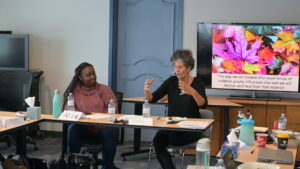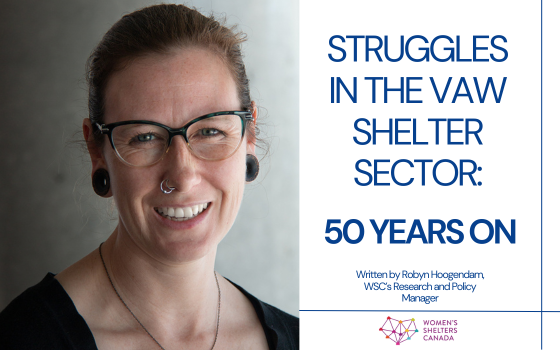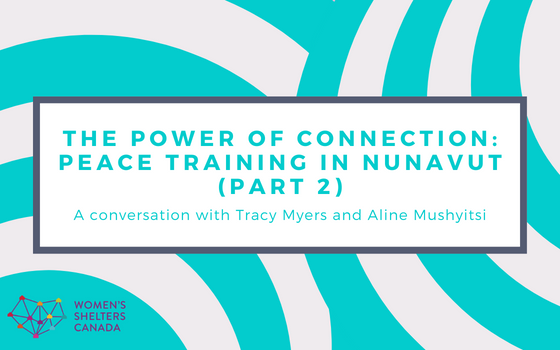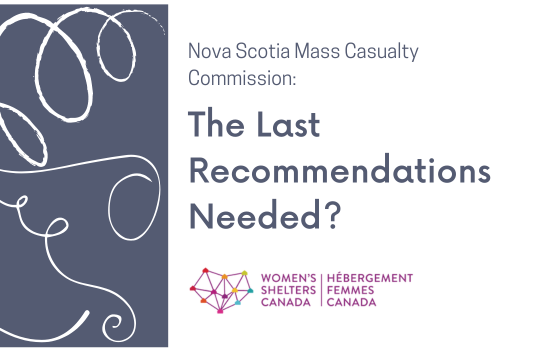
Aline Mananda (left) and Tracy Myers (right)
In March 2023, Women’s Shelters Canada (WSC) facilitated an in-person PEACE for Canadian Children and Youth training in Iqaluit, Nunavut. PEACE facilitators Tracy Myers and Aline Mananda spoke with Jed Nabwangu (communications coordinator) and Chandra Saha (knowledge exchange coordinator) about their memorable adventures leading sessions on the transformative power of coming together.
Chandra: Earlier this year, you facilitated an in-person PEACE training in Iqaluit. Can you tell me about that experience and what stood out to you?
Tracy: To meet in person and have the teams from the BC Society of Transition Houses (BCSTH) and WSC there was wonderful. With the in-person training, we got to chat at coffee break, sit beside our colleagues, hear them breathing, and hear them cry. You’re in the room when that emotion is expressed as opposed to looking at people in small boxes on your screen!
A moment that stood out for me was when one of the participants slammed her hands on the table, exclaiming” It takes too long to get an unsafe woman out of their community! What can we do about that now?” Her passionate call to action prompted us to pause our session and immediately dive into a discussion of real issues involving deep-rooted colonial injustice and legacies. This scenario likely wouldn’t have happened online.
Aline: This same participant got visibly emotional after watching Tracy lead another segment on using puppets with children, saying, “I wish I was one of those children you talked to.”
That impacted me deeply, as it was a reminder that this work is not just for the children, but for the trainees too. These frontline workers would now be able to pass on the healing they experienced with this exercise to the children and women in their communities. You can’t give what you don’t have – the healing starts with you.
C: It’s clear this impactful experience went beyond what you could have planned for and that the depth of it evolved because of the group itself.
This was also a collaborative training, not about people from the South going to the North to impart knowledge. Could you share more about what you took away from this experience as a facilitator and how will it impact your work going forward?
A: I gained so much from the participants. The way they serve their communities showed me this work is not just about training. It requires a deep love and a strong dedication.
Experiencing their remote reality, which is so different from my city life, was eye-opening. The vibrant culture and creativity in weaving teachings into their work was inspirational. I’ll never forget the relationships and wisdom I encountered there. My takeaway is to remember that passion and purpose matter most. The rest will follow.
T: We know how to support one another as women – the participants demonstrated that wisdom of needing each other deeply. My takeaway is to remember we can create revolutions through the power of our relationships.
Jed: Last November, WSC hosted an event called the Feminist Brain Drain Symposium. The idea of whether we are a sector or a movement was a recurring theme. In your opinion, is there value in distinguishing between the two and did this experience inform or shape how you see that?
T: My takeaway is that relationships, not information, spark revolutions and transformational justice. The original fiery spirit of this movement was about fundamentally flipping the systems enabling gender-based violence. It was not about training ourselves to calm our nervous systems. In this training, I felt that flame reignite when that participant banged her fists down in anger and refused to accept the status quo. We need more of that fire to fuel individual and collective change.
The most radical act was women coming together, fueling our collective power. I want to help people rediscover what first brought them to this work, why it matters, and how even small acts can catalyze transformation. This experience gave me new energy and commitment to remind weary hearts of their revolutionary potential. Together, we can make the seemingly impossible, possible.
A: I agree. Healing comes from human connection and being together. This experience reminded me that as women and trainers, we sometimes get lost in philosophy and top-down information. What people in shelters truly need is basic – compassion, listening, and understanding. This approach reignited my passion and reminded me that we must continually return to basics. My core takeaway is remembering that relationships heal, truth sets us free, and love is always the revolution.
Stay tuned for Part 2!
This interview was edited for length and clarity.



